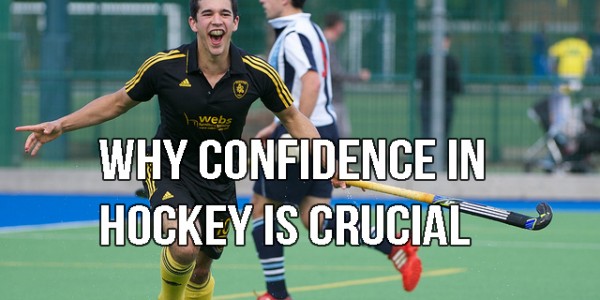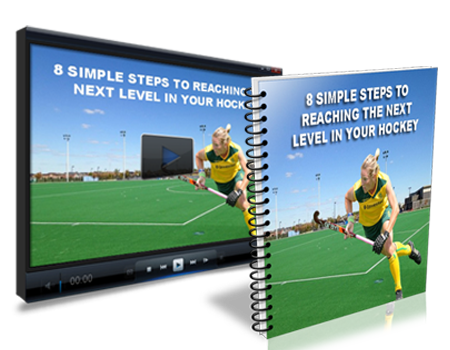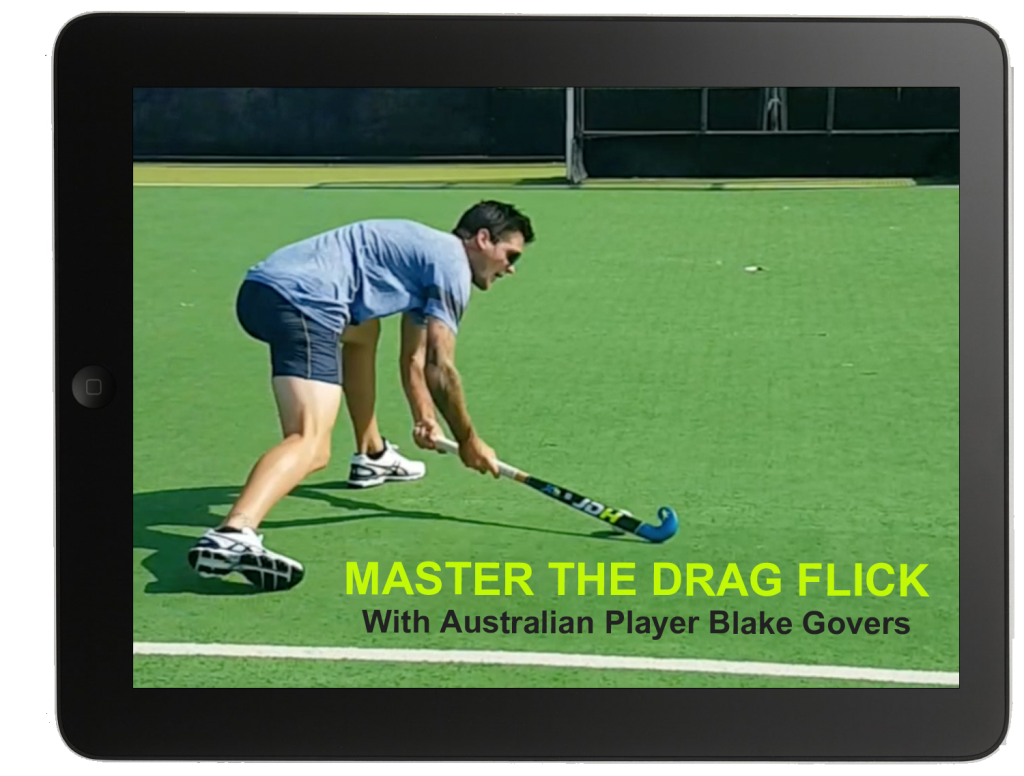Confidence is one of the most important factors to your success as a field hockey player. It plays a huge role in how often you play well and win. Yes, talent is important but without confidence you won’t be able to use your skills efficiently in games and when it counts most.
A lack of confidence is a common obstacle for many hockey players and one that very few people actually truly understand.
Parent’s and coaches may have told you to “Be Positive” but sometimes that doesn’t get the you the results you want or you don’t know how to do this, which can then leave you feeling even more frustrated. Being positive is only one piece of the puzzle and is a lot easier said than done.
What is confidence?
 Confidence is the belief that you have what it takes to do well in your sport. It is something that you have to build continuously to be able to withstand the harsh world of competitive sport. Sometimes you may feel confident and other times not. You can always improve your confidence and develop better habits that allow you to be better and perform more consistently.
Confidence is the belief that you have what it takes to do well in your sport. It is something that you have to build continuously to be able to withstand the harsh world of competitive sport. Sometimes you may feel confident and other times not. You can always improve your confidence and develop better habits that allow you to be better and perform more consistently.
Every athlete has peaks and dips and the difference with the best players are those that limit the peaks and dips and are able to fluctuate the least in order to perform consistently.
How to build confidence
There are many ways to build confidence and this is something I teach over many weeks, specifically helping individuals with what they need as everyone is different.
One simple way is… if you are lacking confidence in your skills then you start by spend more time practicing them. If you are lacking confidence in your fitness, then you need to find ways to get fitter in order to raise your confidence, etc. Don’t just accept low confidence, do something about it!
Often what we are thinking and what we are doing are not always the most effective in helping our confidence and could have the opposite effect. If you want some personal advice on improving your confidence request a free session with me here
The Myth of Confidence vs Cockiness:
Cockiness is not over-confidence, it is in fact a lack of confidence. Those that lack confidence will try to hide from it by putting on a front and hoping that they will slip by unnoticed. The problem is made worse when you come up against someone who is truly confident. Here is the difference between confidence and cockiness:
Confidence vs Cockiness:
If you lack confidence, don’t be afraid of improving your confidence and don’t worry about people thinking that you are cocky. Improved confidence will help you and people will start to respect you more, because you believe in yourself.
Obstacles to confidence
You can’t be confident if you don’t change your thinking and aren’t prepared to take risks. The more effort you put into being confident, the more confident you will become. There are many obstacles that will get in the way of you being confident but…
“It is not what happens to you, it is how you respond”
I spend a lot of time on mental toughness with the hockey players that I work with, in particular on confidence and the way they respond to different situations.
This is why the players that I work with soon start to make higher teams and achieve things they didn’t think they could do after just a short time working together. They learn tools and strategies on how to be more confident and believe in themselves and how to bounce back from difficult situations.
10 things that may affect your confidence:
- Not being selected / being dropped

- Being benched / not getting game time
- Getting sick or injured
- You aren’t as prepared as you could be
- Bad umpiring or coaching decisions
- Worrying about what other people think of you
- What others say to you or about you
- Being beaten by a team/player not as good as you
- Comparing yourself to others
- Other people doubting your ability
Where to from here?
Thinking positively is the first step to becoming more confident and learning how to do this effectively is a skill that will help you in every area of your life. Often ways of thinking stem from beliefs which could have been ingrained from a young age, but these can be changed.
It is important to also develop other area’s of your mindset such as controlling emotions like frustration, anxiety, pressure, fear of failure, focus, resiliency, etc.
This is best done by training the unconscious part of the brain (what you aren’t aware of). This changes your thought patterns at a deeper level, which in turn changes your behaviour and body language.
It is difficult to define success as you may have confidence in one part of your game but you may lack success because of another part of your game, so it is important to develop all area’s which can help you to be successful.
Don’t leave your confidence to chance:
Request a Free Session with me here to find out how I can help you to improve your confidence so that you can give yourself the best chance at reaching your hockey potential.

















